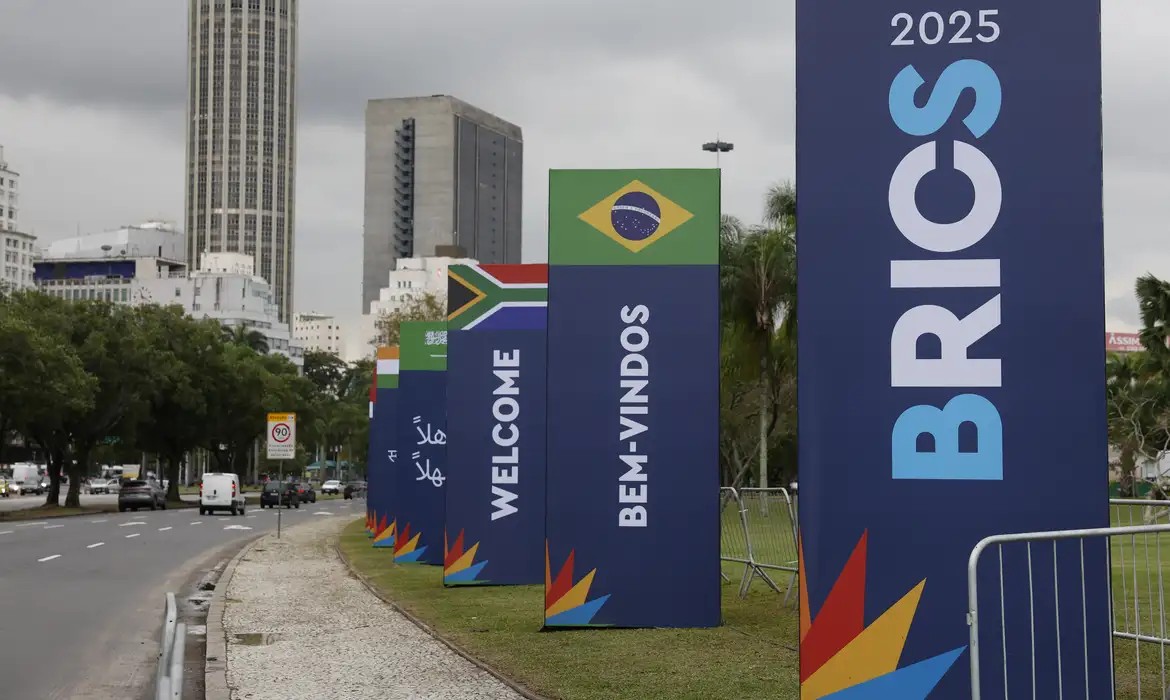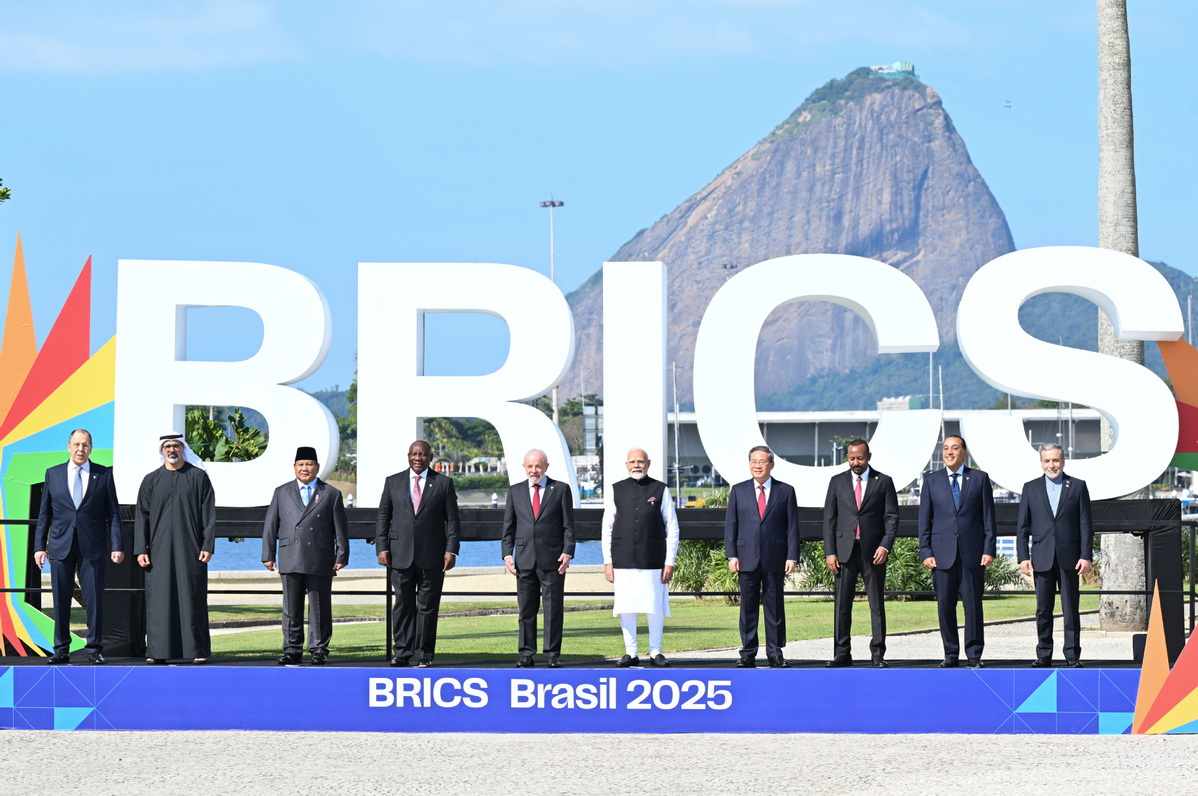Dear Editor, in July, Brazil hosted the 17th BRICS summit on the theme “Strengthening Global South Cooperation for More Inclusive and Sustainable Governance”, and if by any chance you followed main stream media especially from Western outlets the emphasis was put on the absence of the Chinese President Xi Jinping and Russia’s Vladimir Putin. The West pushed this narrative to water down the 17 years of this summit. The BRICS is a group formed by eleven countries: Brasil, Russia, India, China, South Africa, Saudi Arabia, Egypt, United Arab Emirates, Ethiopia, Indonesia, and Iran. It serves as a political and diplomatic coordination forum for countries from the Global South and for coordination in the most diverse areas.
After the summit ended the former President of Russia Dmitry Medvedev said “BRICS is gaining authority. Trump announced that an additional 10% tariff would be imposed on any country that supports BRICS policy. So, we’re doing everything right!”. There was a myriad of development in Rio de Janeiro that are very important to the development of the global South and many based on the South-South framework. For starters on top of the already 11 member states at the moment going by the Kazan declaration the Republic of Belarus, the Plurinational State of Bolivia, the Republic of Kazakhstan, the Republic of Cuba, the Federal Republic of Nigeria, Malaysia, the Kingdom of Thailand, the Socialist Republic of Vietnam, the Republic of Uganda, and the Republic of Uzbekistan attended as BRICS partner countries. Which is a stage to attaining membership status.
Uganda’s delegation was led by the Vice President H.E Maj. (Rtd) Jessica Rose Epel Alupo. The only lady to lead a delegation to the summit from a sovereign country in attendance.
Since BRICS prides itself in political and diplomatic coordination, western media didn’t report about the strongest of emphasis put on multilateral reforms especially with actions that amplify the theme of the summit, for example when it comes to making sure Africa, the Caribbean and South America take a more central role in organizations like the World Bank, the World Trade organization (WTO) and the United Nations Security Council (UNSC). The BRICS recognize the legitimate aspirations of African countries, as reflected in the Ezulwini Consensus and Sirte Declaration that advocate for Africa to have two Permanent seats and 3 non permanent seats at the UNSC, they also stressed that the UNSC reforms are to lead to the amplified voice of the Global South. Recalling the 2022 Beijing and 2023 Johannesburg-II Leaders’ Declarations, China and Russia, as permanent members of the UNSC, reiterated their support to the aspirations of Brazil and India to play a greater role in the UN, including its Security Council.
On the issue of poverty and inequality the BRICS put forward the reform of the world Bank and the IMF so that the Bretton Woods system can address the most critical issues of the global South in a just and with more meaningful representation. The BRICS expressed support for the 2025 World Bank shareholding review that is co-chaired by Brazil that is aimed at enhancing legitimacy of the world bank group so that it’s in a better place to really take on modern challenges like creating jobs for a youthful population and dealing with the climate crisis.
Reforming the WTO was very central to the proceeding especially at a time when commercial diplomacy through Tarrif hikes and other trade restrictions is taking place. BRICS is also advocating for the admission of Iran and Ethiopian into WTO. BRICS are also not going to support sanctions that violate international law, a huge push back to the West’s misuse of the concept.
The BRICS forum reappointed Dilma Rousseff to the presidency of New Development Bank (NDB) an institution that is continuing to grow especially with the capacity to raise money that is used to facilitate projects in the global South. To ensure financial independence and resilience a number of measures amongst BRICS members and partners were put in place for example the BRICS New Investment Platform, the BRICS Interbank Cooperation Mechanism, the Rapid Information Security Channel, and the Contingent Reserve Arrangement that is specifically for use of local currencies while sidelining the US dollar. The measures also facilitate Cross border payments, encourage funding of projects through fast and cheap payments.
Later this year Brazil will host COP30, and climate was very key to issues discussed at the 17th BRICS summit, the forum agreed to approach the climate change issue through multilateralism for example by upholding the Paris agreement and putting in place a BRICS climate leadership agenda dedicated to the climate crisis the world faces. It was agreed that each country should play it’s part and honor it’s commitment to climate financing and that there should be local solutions that don’t encourage protectionism in the pretext to combating climate change.
Peace and security was also top of the agenda, for starters there was concern for ongoing conflict around the world, and discouragement for increased military spending that is becoming the trend world over. The BRICS jointly condemned the USA’s military actions on Iran that were against the UN Charter. On the Ukraine situation there was acknowledgement of the different national positions and a peaceful way forward was advocated for, and appreciation of mediation efforts like the Africa initiative.
On the Israel-Palestine question the BRICS strongly condemned Israel’s actions in Gaza for example the blocking of entry of humanitarian aid and called for an unconditional Ceasefire and the release of hostage on both sides and expressed support for a two state solution.
BRICS was very conscious on human rights, women’s empowerment, the summit committed to advanced collaborative endeavors like the BRICS Network of Universities. Encouraged celebration of cultural heritage and the return of cultural items taken from the global South. There was a very intentional pronouncement on the question of AI and technological advancements.
BRICS is growing, evolving and expanding as it proves its ready to take part in shaping a multipolar world that is inclusive and beneficial for especially the global South.
The writer is a research fellow at the Development Watch Centre.

